 2016-12-07
2016-12-07
Poorly maintained air conditioning systems cause mold or other bacteria to spread; they often also generate drafts and are costly to operate. An alternative technology that uses ceiling panels covered in special heat-conducting film operates well below the dew point. Designed by Fraunhofer researchers, the system offers hygienic cooling even in tropical climates, and uses up to 70% less energy. The multifunctional system will be launched at the BAU trade fair from January 16-21, 2017 as part of the Fraunhofer Building Innovation Alliance’s special show, “Fraunhofer CityLaboratory – creating living spaces” (Hall C2, Booth 538).
Continue reading →
 2016-12-06
2016-12-06
As a means of demystifying LED driver technology Fulham, the lighting component and electronics specialist, has produced a technical white paper on the subject.
Continue reading →
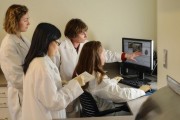 2016-12-06
2016-12-06
New LED lights that are being installed in milk display cases across the country do more than just reduce energy bills -- they also help milk taste better, Virginia Tech researchers have found.
Continue reading →
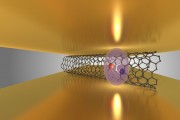 2016-11-22
2016-11-22
With their research on nanomaterials for optoelectronics, scientists from Heidelberg University and the University of St Andrews (Scotland) have succeeded for the first time to demonstrate a strong interaction of light and matter in semiconducting carbon nanotubes. Such strong light-matter coupling is an important step towards realizing new light sources, such as electrically pumped lasers based on organic semiconductors. They would be, amongst other things, important for applications in telecommunications. These results are the outcome of a cooperation between Prof. Dr Jana Zaumseil (Heidelberg) and Prof. Dr Malte Gather (St Andrews), and have been published in “Nature Communications”.
Continue reading →
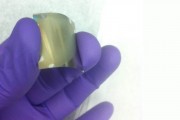 2016-11-18
2016-11-18
For the first time, researchers have created light-emitting diodes (LEDs) on lightweight flexible metal foil.
Continue reading →
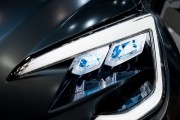 2016-11-18
2016-11-18
Star Li, a senior application engineer at NXP automotive solid-state lighting team explains how automotive lighting systems can be designed using multi-phase driver IC in headlamp lighting controls.
Continue reading →
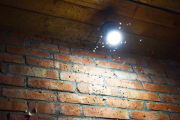 2016-11-15
2016-11-15
Research team highlights the potential of LEDs in reducing the attraction of disease-carrying insects.
Continue reading →
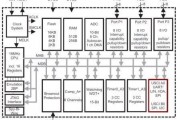 2016-11-15
2016-11-15
Jose Gonzalez Torres Worldwide Product Engineer for Standard Power Products at Texas Instruments shares in this entry how to design dynamic power solution for stepper motors, relays and LEDs.
Continue reading →
 2016-11-11
2016-11-11
Dr. David Bacon shares in this Lighting Science blog entry how soldiers deployed on missions might find sweet sleep difficult during assignments.
Continue reading →
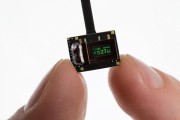 2016-11-09
2016-11-09
Data glasses mirror information to the eye without interfering with the wearer‘s vision. However, the battery runs down quickly, because the electronics consume a great amount of electricity while playing back the images. Fraunhofer researchers have developed an energy-saving display that reduces the power consumption to a fraction. The new display will be presented at the electronica trade fair in Munich from Nov. 08-11, 2016.
Continue reading →
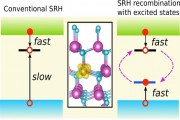 2016-11-04
2016-11-04
Using cutting-edge first-principles calculations, researchers at the University of California, Santa Barbara (UCSB) have demonstrated the mechanism by which transition metal impurities - iron in particular - can act as nonradiative recombination centers in nitride semiconductors. The work highlights that such impurities can have a detrimental impact on the efficiency of light-emitting diodes (LEDs) based on gallium nitride or indium gallium nitride.
Continue reading →
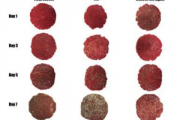 2016-11-03
2016-11-03
Taking Stock Contributor Samantha Kneeskern covers in this article how different lighting can make ground beef appear more appealing or dull.
Continue reading →
 2016-10-27
2016-10-27
Smart manufacturing will be the key to upgrading the printed circuit board industry! ITRI exhibited its expertise in innovative PCB manufacturing technology at the TPCA Show 2016, displaying the High Aspect Ratio Maskless Fine Line Printing Technology and Additive Process for Printed Fine Line Circuits, as well as its Intelligent Power Module for Automotive Battery Control. ITRI's innovative technology will assist in propelling the value of both the upstream and downstream sectors of Taiwan's PCB industry, thereby solidifying the foundation in making the industry a trillion dollar one in the future.
Continue reading →
 2016-10-26
2016-10-26
Martin Moss, the automotive marketing manager at Texas Instruments shares in this blog post how to create a 24W power supply for automotive LED lighting systems.
Continue reading →
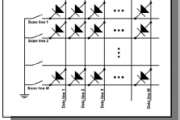 2016-10-18
2016-10-18
Micro-LED a light emitting diode driven by electric currents, similar to traditional LEDs in display applications it can be driven using passive matrix or active matrix. A third current driving method is the new semi-active matrix driver, which uses a completely different method compared to existing models. Below we will introduce three different circuit designs and their basic theories.
Continue reading →
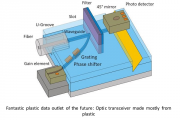 2016-10-11
2016-10-11
"Great in Optics –Small in Size!" The growing core of the “PolyPhoton- ics” Innovation Initiative will take this motto to the global communica- tions market. The project is part of the “Regional Enterprise Initiative”of the German Federal Ministry of Research. The consortium develops the value chain for the creation of a new technology platform. The Fraunho- fer Heinrich Hertz Institute HHI coordinates the project.
Continue reading →
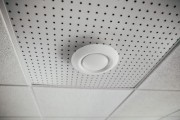 2016-10-05
2016-10-05
With the rise in wearables such as smartwatches and fitness trackers that rely on smart sensors, and the continued popularity of smartphones, smart devices are taking our country by storm. Wireless data for such devices is typically beamed through Wi-Fi or Bluetooth, yet, the new wireless communication technology of "visible light communication (VLC)," has emerged as a new option albeit with limitations due to the challenges it faces in practice, such as being easily blocked or not being able to sustain transmission when light is off. Through a new Dartmouth project called "DarkLight," researchers have developed and demonstrated for the first-time, how visible light can be used to transmit data even when the light appears dark or off. DarkLight provides a new communication primitive similar to infrared communication, however, it exploits the LED lights already around us rather than needing additional infrared emitters.
Continue reading →
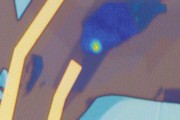 2016-09-29
2016-09-29
Researchers from the Graphene Flagship use layered materials to create an all-electrical quantum light emitting diodes (LED) with single-photon emission. These LEDs have potential as on-chip photon sources in quantum information applications.
Continue reading →
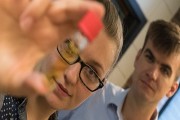 2016-09-29
2016-09-29
Glow-in-the-dark stickers, weird deep-sea fish, LED lightbulbs — all have forms of luminescence. In other words, instead of just reflecting light, they make their own
Continue reading →
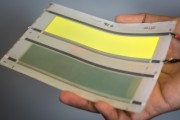 2016-09-26
2016-09-26
Dutch R&D institute Holst Centre (set up by imec and TNO) and American ultra-thin ceramics supplier ENrG Inc. have created the first ever ceramic-based, large-area flexible OLED. The device, manufactured on the 20-40 µm thick Thin E-Strate® ceramic substrate, promises a lifetime in excess of 10 years without the formation of blackspots. The ceramic carrier is also easy to handle and capable of withstanding the high temperatures used in display backplane manufacturing and standard sintering processes.
Continue reading →
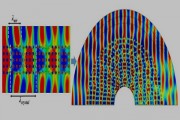 2016-09-13
2016-09-13
Almost as elusive as unicorns, finding practical materials for invisibility cloaking is challenging. Michigan Technological University researchers have new ideas how to solve that.
Continue reading →
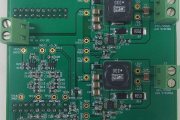 2016-09-12
2016-09-12
The TIDA-01096 TI design is a tested DC-DC LED driver sub system for tunable white LED luminaires. It is built-on a wireless SoC platform which can enable intensity adjustment (dimming) and co-related color temperature (CCT) control using any BLE smart device. Tunable white light luminaires simulate daylight conditions. With a separate warm-white and cold-white LED string, it allows CCT tuning and thereby helps achieving proper circadian stimulation. TI design TIDA-01096 provides high efficiency DC-DC conversion and allows dimming and color temperature control over more than 1:50 and 1:500 range using analog and PWM methods.
Continue reading →
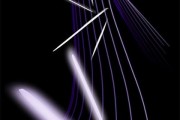 2016-09-08
2016-09-08
“Promising” and “remarkable” are two words U.S. Department of Energy’s Ames Laboratory scientist Javier Vela uses to describe recent research results on organolead mixed-halide perovskites.
Continue reading →
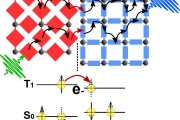 2016-09-05
2016-09-05
The upconversion of photons allows for a more efficient use of light: Two photons are converted into a single photon having higher energy. Researchers at KIT now showed for the first time that the inner interfaces between surface-mounted metal-organic frameworks (SURMOFs) are suited perfectly for this purpose - they turned green light blue. The result, which is now being published in the Advanced Materialsjournal, opens up new opportunities for optoelectronic applications such as solar cells or LEDs. (DOI: 10.1002/adma.201601718)
Continue reading →
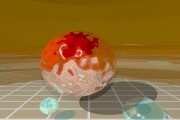 2016-09-01
2016-09-01
New research suggests that it is possible to create a new form of light by binding light to a single electron, combining the properties of both.
Continue reading →
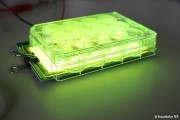 2016-08-26
2016-08-26
Cytocompatibility studies of organic light-emitting diodes (OLEDs) have been carried out on cell cultures for the first time at the Fraunhofer FEP to test how well OLEDs are tolerated by cells. The results offer promising prospects for the use of OLEDs in the medical field, such as in light therapy. The findings will be published in a white paper entitled “Preliminary cytocompatibility studies for encapsulated OLEDs” and likewise be presented at the 4th Industry Partners Day of the Fraunhofer FEP in Dresden on Sept. 28, 2016.
Continue reading →
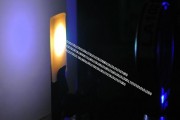 2016-08-15
2016-08-15
While Wi-Fi and Bluetooth are now well established technologies, there are several advantages gained by shortening the wavelength of the electromagnetic waves used for transmitting information.
Continue reading →
 2016-08-10
2016-08-10
In a large open office on the fourth floor of the Lighting Research Center (LRC) at Rensselaer Polytechnic Institute, lighting scientist Leora Radetsky lifts the blinds and lets in the sunlight. The overhead LED luminaires dim in response, fluidly, maintaining consistent light levels on the desk spaces. She lowers the blinds and the luminaires instantaneously increase light levels in response.
Continue reading →
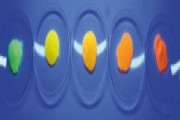 2016-08-10
2016-08-10
Rare-earth metals, which are needed for dyes and phosphor converters in light emitting diodes, are a finite resource. Osram Opto Semiconductors, as one of four partners in the “ORCA” project, is therefore researching and developing new types of organic dyes and inorganic phosphor converters. The aim of this project, which began on May, 2016, is to reduce the volume of these materials by developing new solutions, and to encourage the implementation of these solutions in actual production.
Continue reading →
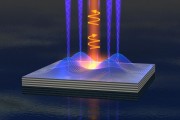 2016-08-09
2016-08-09
Researchers have built a miniature electro-optical switch which can change the spin -- or angular momentum -- of a liquid form of light by applying electric fields to a semiconductor device a millionth of a meter in size. Their results, reported in the journal Nature Materials, demonstrate how to bridge the gap between light and electricity, which could enable the development of ever faster and smaller electronics.
Continue reading →
 2016-12-07
2016-12-07
 2016-12-06
2016-12-06
 2016-12-06
2016-12-06
 2016-11-22
2016-11-22
 2016-11-18
2016-11-18
 2016-11-18
2016-11-18
 2016-11-15
2016-11-15
 2016-11-15
2016-11-15
 2016-11-11
2016-11-11
 2016-11-09
2016-11-09
 2016-11-04
2016-11-04
 2016-11-03
2016-11-03
 2016-10-27
2016-10-27
 2016-10-18
2016-10-18
 2016-10-11
2016-10-11
 2016-10-05
2016-10-05
 2016-09-29
2016-09-29
 2016-09-29
2016-09-29
 2016-09-26
2016-09-26
 2016-09-13
2016-09-13
 2016-09-12
2016-09-12
 2016-09-08
2016-09-08
 2016-09-05
2016-09-05
 2016-09-01
2016-09-01
 2016-08-26
2016-08-26
 2016-08-15
2016-08-15
 2016-08-10
2016-08-10
 2016-08-10
2016-08-10
 2016-08-09
2016-08-09